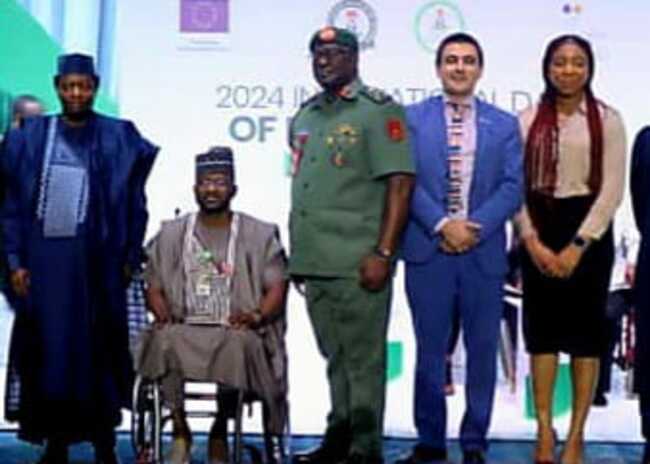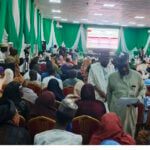
The European Union (EU) has urged the Federal Government of Nigeria to commit to fully implementing the National Disability Act, calling for a shift from legislation to action in addressing the needs of over 35 million Nigerians living with disabilities.
Speaking during a national dialogue in Abuja to mark the International Day of Persons with Disabilities, the EU highlighted that while the Disability Act provides a robust framework for inclusion, its impact remains unrealised due to inadequate implementation.
Representing EU Ambassador-designate Gautier Mignot, Ruben Alba Aguilera, Head of the Governance, Security, and Migration Section at the EU Delegation to Nigeria and ECOWAS, expressed concern about the exclusion of persons with disabilities in national development efforts.
Aguilera lamented societal barriers that perpetuate poverty, violence, and limited access to education and employment for people with disabilities, despite their rights being enshrined in both national and international frameworks.
“Although inclusion is affirmed in the UN Convention on the Rights of Persons with Disabilities, many interventions still fail to account for this population. It is not inevitable; we must be deliberate about ensuring disability inclusion,” Aguilera stated.
He noted that nine out of ten persons with disabilities in Nigeria live below the poverty line and called for urgent action to allocate sufficient resources and break down barriers to inclusion.
Prof. Nentawe Yilwatda, Minister of Humanitarian Affairs and Poverty Reduction, represented by Sunday Hezekiah, echoed the EU’s concerns, emphasising the challenge of inadequate funding for disability-related initiatives. He urged policymakers and the National Assembly to prioritise resource allocation for education, welfare, and infrastructure that support persons with disabilities.
Chief Ayuba Gufwan, Executive Secretary of the National Commission for Persons with Disabilities (NCPWD), called for greater accountability and leadership, stating, “Today is a time for reflection: where we’ve been, where we are, and where we’re heading as a nation on disability inclusion.”
Danladi Plang, Head of Programme for the Rule of Law and Anti-Corruption (RoLAC) Programme, stressed that sustainable development hinges on integrating the needs of persons with disabilities in planning and policy-making.
The dialogue, themed “Transformative Solutions to Disability-Inclusive Development in Nigeria,” was organised by the NCPWD and the Federal Ministry of Humanitarian Affairs and Poverty Alleviation, with EU support through the RoLAC Programme.
The EU reaffirmed its commitment to supporting disability inclusion in Nigeria through targeted international partnerships and development interventions.
READ MORE FROM: NIGERIAN TRIBUNE
WATCH TOP VIDEOS FROM NIGERIAN TRIBUNE TV
- Let’s Talk About SELF-AWARENESS
- Is Your Confidence Mistaken for Pride? Let’s talk about it
- Is Etiquette About Perfection…Or Just Not Being Rude?
- Top Psychologist Reveal 3 Signs You’re Struggling With Imposter Syndrome
- Do You Pick Up Work-Related Calls at Midnight or Never? Let’s Talk About Boundaries






